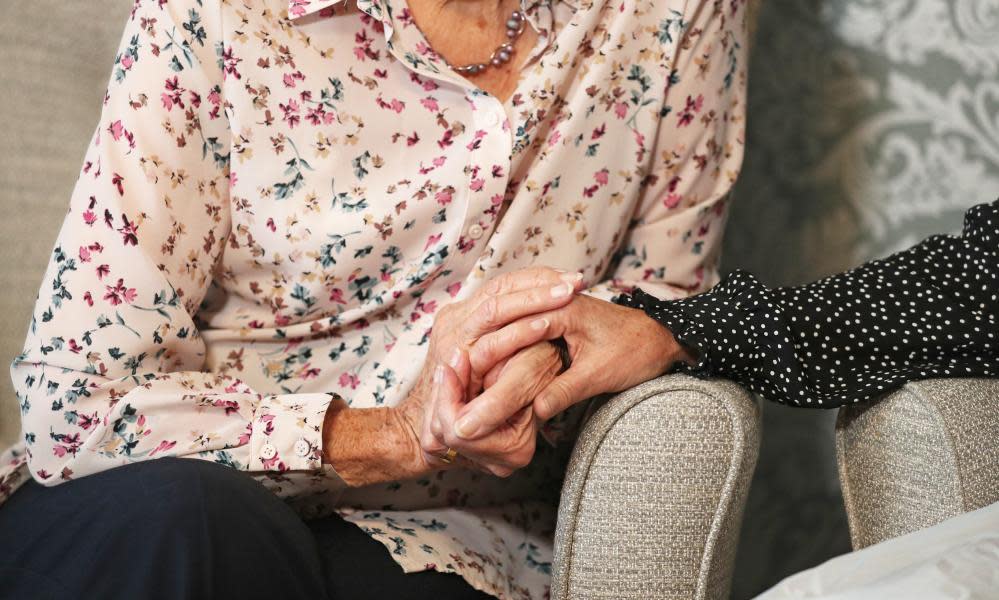Hundreds of dementia care homes found to be substandard in England

Hundreds of care homes in England are providing substandard care to dementia patients, analysis by the Guardian has found.
One in five homes specialising in dementia are rated “inadequate” or “requires improvement” by the Care Quality Commission (CQC), inspection reports show. Some pose such a serious risk to people with dementia – including filthy conditions, poor infection control and untrained staff – that inspectors have ordered them to be placed into special measures.
Altogether, 1,636 care homes are failing patients in findings described by charities and campaigners as “appalling”. They said urgent action was needed to tackle the “unacceptable” state of dementia care across the country.
Of 7,589 care homes registered in England with a dementia specialism, 153 are classed as “inadequate” and 1,483 as “requires improvement”, the analysis of official data for December shows. There are 5,413 rated “good” and 307 “outstanding”. A further 232 had no rating.
Zoe Campbell, the director of operations at the Alzheimer’s Society, said: “It’s appalling to hear that one in five care homes specialising in dementia are delivering substandard care. Every person with dementia deserves to live in a safe, secure place and to be treated with compassion and respect.”
Campbell said the revelations meant staff recruitment and dementia training must be prioritised in the government’s social care proposals.
In October, the Guardian revealed how a care home boasting of “exceptional personalised care” for dementia patients had been put into special measures after inspectors found residents with faeces under their fingernails, wearing other residents’ clothes and sleeping in dirty bedrooms.
Longfield residential home in Blackburn, Lancashire, said its dementia patients “receive the best personalised care”. But when CQC officials made an unannounced visit they were alarmed to discover “undignified” conditions.
Staff said they would never put their own relatives in the home, while a manager admitted it appeared people’s feet “hadn’t been washed for months”. Patients at risk of weight loss were not being weighed as frequently as necessary, putting them in danger of malnutrition, according to a damning 14-page inspection dossier.
Since October, the number of care homes with a dementia specialism in England rated “inadequate” by the CQC has increased, from 143 to 153, and care homes classed as “requires improvement” rose from 1,456 to 1,483.
Caroline Abrahams, the charity director at Age UK, said: “Hundreds of thousands of older people with advanced dementia live in care homes, and while each and every one of them deserves excellent personalised and compassionate care, we know only some actually get it.
“The pandemic has made the situation worse, but the biggest problem of all is the growing staffing crisis in social care. It’s frankly impossible to provide the kind and intensive support that many of these older people need if there aren’t enough staff to go round, or if there’s a lot of churn and consequent reliance on agency workers to plug gaps.
“Without one to one help with eating and drinking, for example, there’s a risk of some older people becoming malnourished and dehydrated, jeopardising their underlying health as well as their happiness and wellbeing.”
Abrahams said it was an indictment of society “that we are failing so many” dementia patients.
“They are fully able to enjoy life, just like you and me, if they receive great care, based on strong relationships and delivered by skilled and confident staff, who are themselves well supported. It’s so sad that as a result of underinvesting in care and failing to nurture the care workforce we are leaving too many of these older people in suboptimal settings, where some just fade away.”
At Longfield, inspectors found the laundry room contained a sluice area that was so dirty staff were using a toilet area and a resident’s bedroom as a laundry area instead. A relative of a resident said they discovered their loved one had gone to hospital with faeces under their fingernails, wearing another person’s clothes with holes in and slippers that were too big.
Because the care home did not have enough staff to meet people’s needs, it used agency workers who were unreliable and who “didn’t have the appropriate training to look after people”, the CQC found.
Longfield said it was under new management and had since made significant improvement. A spokesperson added: “The home implemented a new management system a week prior to inspection and was undergoing significant renovations. The home has been regularly liaising with CQC and Blackburn with Darwen adult social care services.”
Judy Downey, the chair of charity the Relatives & Residents Association, said: “No amount of clapping or kind words on the overworked and underpaid workforce is a substitute for training and regular oversight. Unless and until the government commits to mandatory and accredited training and a proper career structure for care workers, nothing will change.”
Debbie Ivanova, the CQC’s deputy chief inspector, said the majority of care homes registered to care for people with dementia were providing good, safe care. “However, there are sadly some instances where our inspectors have found care so poor that we needed to take action to protect people.
“Earlier this year at Longfield residential home, Blackburn, inspectors found such poor hygiene and infection control standards that we placed the home into special measures.
“These examples are shocking but we want to provide reassurance – firstly, that most providers are rated good or outstanding and secondly, that where we have concerns about care we will inspect and will act to protect people if necessary. If anyone has concerns about care, they should contact us.”

 Yahoo News
Yahoo News 
